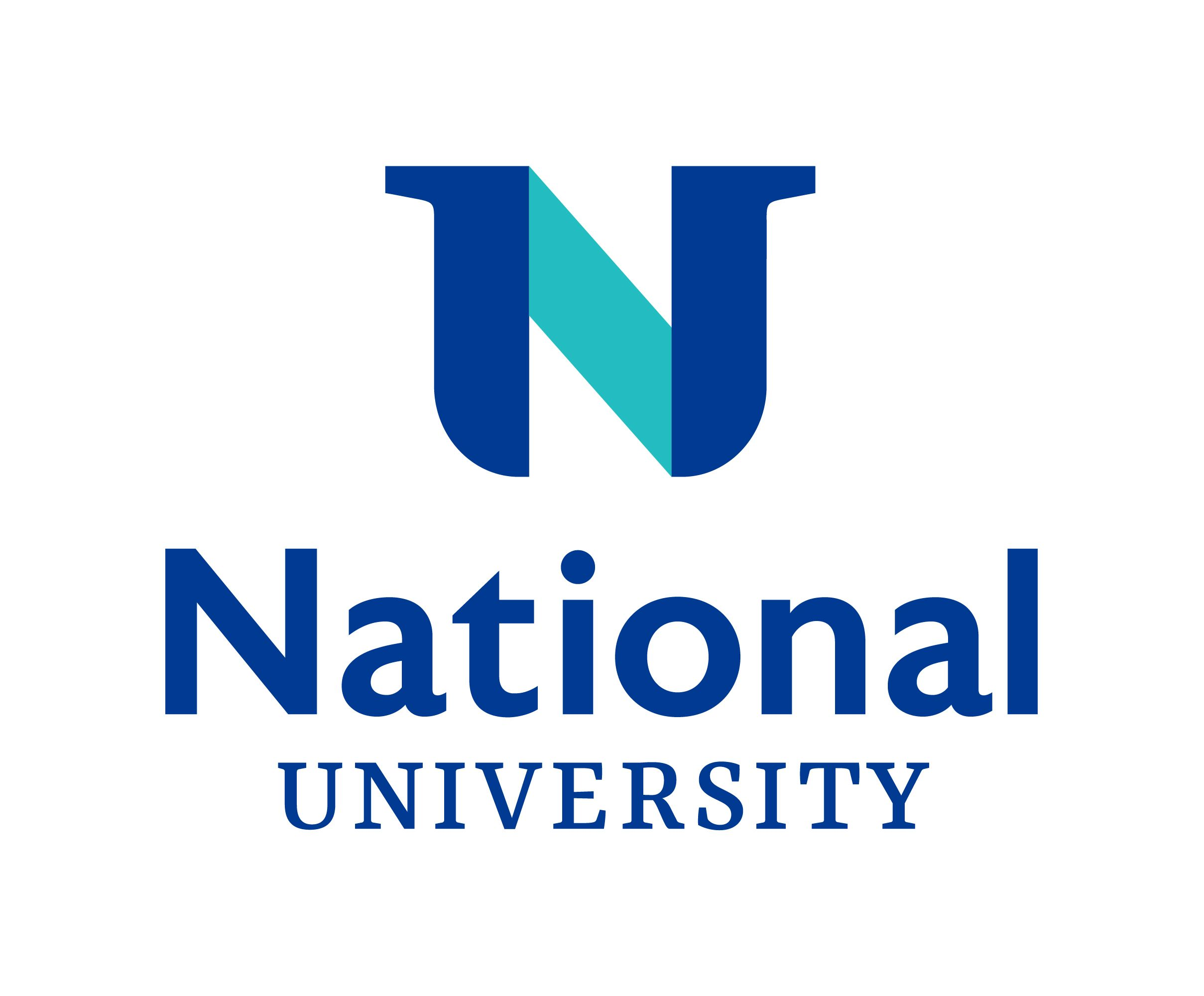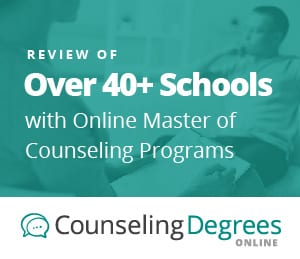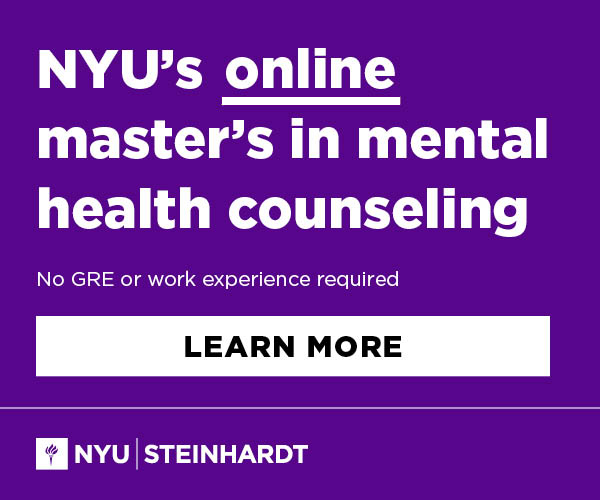 Syracuse University : Master of Social Work (CSWE accredited. Standard and Advanced Standing tracks. No GRE required.)
Syracuse University : Master of Social Work (CSWE accredited. Standard and Advanced Standing tracks. No GRE required.) Liberty University : MSW: Social Work (100% online, 8-week courses)
Liberty University : MSW: Social Work (100% online, 8-week courses) Grand Canyon University : Degrees in Social Work (As a private university, GCU has the same in-state and out-of-state tuition. No GRE Required.)
Grand Canyon University : Degrees in Social Work (As a private university, GCU has the same in-state and out-of-state tuition. No GRE Required.) Fordham University : Master of Social Work (Earn an MSW online. Traditional and advanced standing online MSW options are available. Accredited by the CSWE.)
Fordham University : Master of Social Work (Earn an MSW online. Traditional and advanced standing online MSW options are available. Accredited by the CSWE.) University of Denver : Master of Social Work (Earn an MSW in as few as 12 months. No GRE required. CSWE accredited)
University of Denver : Master of Social Work (Earn an MSW in as few as 12 months. No GRE required. CSWE accredited) National University : Master of Social Work (Accredited. No GRE. Scholarships Available)
National University : Master of Social Work (Accredited. No GRE. Scholarships Available) Northern Kentucky University : Master of Social Work (100% Online, Prepare for LCSW/LISW)
Northern Kentucky University : Master of Social Work (100% Online, Prepare for LCSW/LISW)What Are 1-Year Online MSW Programs, No BSW Required?
One-year online MSW programs with no BSW requirement are innovative graduate programs designed to provide intensive, comprehensive social work education in a condensed time frame. Typically, traditional MSW programs require two years of full-time study. However, these accelerated programs are structured to be completed in as little as one year, making them an ideal choice for individuals eager to enter the field swiftly.
Unlike regular MSW programs, which often require a BSW for admission, these accelerated MSW programs cater to students from a variety of educational backgrounds. This inclusivity allows individuals with undergraduate degrees in fields other than social work to pursue a career in this compassionate and challenging profession.
These programs maintain rigorous academic standards and are tailored to impart the essential knowledge and skills required in social work, ensuring graduates are well-equipped to meet the demands of the profession.
Individuals who have a BSW and are looking for an accelerated MSW program may be interested in pursuing an advanced standing MSW program.
Consider a Featured Online Counseling Program
| School and Program Information | Online Program? Entry Requirements |
Course Information |
|---|---|---|
| Syracuse University
Master of Social Work
CSWE accredited |
✔ Online
No GRE Required |
Syracuse University’s CSWE-accredited online Master of Social Work program is preparing the next generation of social work leaders through an emphasis on digital innovation and social justice. Learn More |
| Liberty University
MSW: Social Work
SACSCOC |
✔ Online
100% online, 8-week courses |
This program offers a general cognate and an individual and family clinical cognate. No matter which option you choose, you’ll receive advanced generalist training in social policy, research, and practice — as well as the opportunity to apply what you’ve learned in your field. Online and on campus. Training Champions for Christ since 1971. Learn More |
| Grand Canyon University
Degrees in Social Work
Bachelors and Masters |
✔ Online
No GRE Required |
Grand Canyon University now offers undergraduate and graduate degree programs that are suited to a future career in social work. You can apply to the Bachelor of Social Work degree program or several graduate programs such as the Master of Social Work program to further your education. Currently in Candidacy status with the Council on Social Work Education. Learn More |
| Fordham University
Master of Social Work
Accredited by the CSWE. |
✔ Online
Bachelor's Degree |
Fordham’s top-ranked Graduate School of Social Service offers a future-focused online MSW program, preparing students for integrated practice with all populations. Bachelor's degree required. Learn More |
| University of Denver
Master of Social Work
CSWE accredited. |
✔ Campus, Online
No GRE Required Minimum GPA 2.5 |
Earn your CSWE-accredited MSW online from Denver's GSSW, a top-15 school of social work. Gain a strong foundation for social work practice with a concentration in Mental Health and Trauma or Health, Equity and Wellness. GRE scores are not required. Students with a BSW can earn their MSW in as few as 12 months in the online advanced-standing track; students without a BSW can earn an MSW in as few as 21 months. Learn More |
| National University
Master of Social Work
COAMFTE Accredited |
✔ Online
GRE Scores Not Required |
Our Master of Social Work (MSW) degree program will prepare students for diverse career opportunities within a variety of social service settings. Learn More |
| Northern Kentucky University
Master of Social Work
|
✔ Online
100% Online, Prepare for LCSW/LISW |
This flexible program is for individuals who have earned an undergraduate degree in a field other than social work. It provides the path to help you transition into this sector and take on leadership roles as a clinical practitioner. Learn More |
*Sponsored Counseling Programs
Online CACREP Accredited programs | Online MPCAC Accredited programs
Advantages of Completing Accelerated MSW Programs Online
One advantage of completing an accelerated MSW program online is the significant time savings that can be achieved. Completing a master's degree in one year instead of two allows graduates to enter the workforce sooner, an appealing prospect for many. This is especially beneficial for mid-career professionals who wish to transition into social work without taking an extended leave from the workforce.
Online delivery of these programs adds another benefit: flexibility. Students can balance their studies with personal and professional commitments, accessing course materials and participating in virtual classrooms from any location. This convenience does not compromise the quality of education, as online programs often employ innovative teaching methods and technologies to enhance the learning experience.
 Syracuse University - Master of Social Work (CSWE Accredited)
Syracuse University - Master of Social Work (CSWE Accredited)
 Liberty University - MSW: Social Work (SACSCOC Accredited)
Liberty University - MSW: Social Work (SACSCOC Accredited)
 Grand Canyon University - Degrees in Social Work (NASAC Accredited)
Grand Canyon University - Degrees in Social Work (NASAC Accredited)
 Fordham University - Master of Social Work (CSWE Accredited)
Fordham University - Master of Social Work (CSWE Accredited)
 University of Denver - Master of Social Work (CSWE Accredited)
University of Denver - Master of Social Work (CSWE Accredited)
 National University - Master of Social Work (COAMFTE Accredited)
National University - Master of Social Work (COAMFTE Accredited)
 Northern Kentucky University - Master of Social Work (CSWE Accredited)
Northern Kentucky University - Master of Social Work (CSWE Accredited)
Key Features of 1-Year MSW Programs
The curriculum in these accelerated MSW programs is carefully crafted to cover all essential areas of social work within a shortened time frame. Core courses typically include topics such as social work ethics, research methods, social welfare policy, and clinical practice skills. These programs also emphasize real-world application, with many incorporating internships or fieldwork components to provide hands-on experience.
Given the intensive nature of these programs, they demand a high level of commitment and engagement from students. The accelerated pace means coursework can be demanding, but it also ensures a comprehensive education that fully prepares graduates for professional practice.
Admission Requirements and Application Process
Admission into one-year MSW programs with online availability and no BSW requirement typically requires a bachelor’s degree, but not necessarily in social work. Applicants often need to demonstrate academic proficiency, usually through a solid GPA from their undergraduate studies. Additionally, some programs may require relevant work experience or exposure to social work settings, either through employment or volunteer work.
The application process usually involves submitting undergraduate transcripts, a resume, letters of recommendation, and a personal statement. Some programs may also require interviews. Prospective students should carefully review the admission requirements for each program and prepare their application materials accordingly, ensuring they highlight their commitment to and suitability for a career in social work.
Accreditation for 1-Year MSW Programs
Accreditation is a crucial factor to consider when choosing an MSW program. Accredited programs meet the educational standards set by professional accrediting bodies, ensuring the quality and relevance of the curriculum. For MSW programs, the Council on Social Work Education (CSWE) is the primary accrediting body in the United States.
Prospective students should verify the accreditation status of their chosen program, as this impacts not only the quality of education but also eligibility for licensure as a social worker. Graduating from an accredited program is often a prerequisite for taking licensing exams and obtaining professional credentials.
Career Opportunities with an Accelerated MSW
Graduates of accelerated MSW programs are well-equipped to pursue a range of career opportunities in social work. These include clinical social work, where they can provide therapy and counseling services, community social work, advocacy, policy analysis, and administration in various settings such as healthcare, schools, and non-profit organizations. The MSW degree, particularly from an accelerated program, signals to employers a candidate’s ability to thrive in fast-paced, dynamic environments and their commitment to social work principles.
Graduates of accelerated MSW programs can explore a diverse range of career paths in various sectors. Here are some of the key roles they might pursue, including job outlook and salary information based on data from the U.S. Bureau of Labor Statistics (BLS):
Clinical Social Worker
- Role: Clinical social workers provide counseling and therapy to clients, dealing with issues like mental health, substance abuse, and family problems.
- Job Outlook: Employment of social workers is projected to grow 7% between 2022 and 2032, faster than average.
- Salary: As of May 2022, the median annual wage for social workers was approximately $55,350.
School Social Worker
- Role: School social workers work within educational settings to support students’ emotional, social, and academic needs.
- Job Outlook: The field is expected to grow due to an increasing focus on student mental health and well-being.
- Salary: The median annual wage for child, family, and school social workers was $50,820 as of May 2022.
Healthcare Social Worker
- Role: Healthcare social workers assist patients and families in navigating the emotional and logistical challenges associated with healthcare, such as chronic illness or hospitalization.
- Job Outlook: Particularly strong growth is expected due to an aging population and a greater need for healthcare services.
- Salary: The median annual wage for healthcare social workers was $60,280 as of May 2022.
Community Service Manager
- Role: Community service managers oversee programs and organizations that support public well-being, often requiring strategic planning and administration skills.
- Job Outlook: Employment of social and community service managers is projected to grow 9% between 2022 and 2032 as communities continue to invest in social services.
- Salary: Social and community service managers had a median annual salary of $74,240 as of May 2022.
Policy Analyst
- Role: Policy analysts work on developing, analyzing, and advocating for policies that impact social welfare.
- Job Outlook: The role will see steady demand in government and non-profit sectors.
- Salary: According to Payscale, the median annual salary for policy analysts was about $64,000 as of October 2023.
MSW vs. MFT and LCSW Pathways
It’s important for prospective students to understand how an MSW compares to other related pathways like marriage and family therapy (MFT) and licensed clinical social worker (LCSW). While an MSW provides a broad foundation in social work, MFT focuses specifically on therapy within the context of family systems. An LCSW, on the other hand, is a specific licensure for social workers that allows them to provide clinical services, often requiring an MSW as a prerequisite.
Each pathway leads to different career opportunities and specializations. Understanding these differences is crucial for students to make informed decisions about their educational and career paths, especially when considering MSW vs. MFT and LCSW online programs.
Cost and Financial Aid Options
The cost of accelerated MSW programs can vary significantly, but they are often more cost-effective than traditional two-year programs due to their shorter duration. Students should consider tuition fees, technology fees, and potential costs associated with internships or field placements.
Financial aid is often available, including scholarships, grants, and student loans. Prospective students should explore these options, along with any financial aid resources provided by the institutions offering the MSW programs.
The affordability of an accelerated one-year MSW program is a key consideration for many prospective students. While these programs can offer significant savings in terms of time, understanding the financial implications is crucial for making an informed decision.
Tuition and Fees
- Tuition Costs: The cost of tuition for accelerated MSW programs can vary widely depending on the institution. On average, tuition may range from $20,000 to $40,000 for the entire program, but it’s important to check specific program details for exact figures.
- Additional Fees: Students should also budget for additional costs such as technology fees, textbooks, and materials. These can add several thousand dollars to the overall cost.
Comparing Costs
- Traditional vs. Accelerated Programs: While the per-semester cost might be similar, accelerated programs typically require fewer semesters, potentially reducing the total cost.
- Online vs. On-Campus Programs: Online programs can sometimes be more affordable than their on-campus counterparts, as they often have lower associated fees and eliminate the need for commuting or relocating.
Financial Aid and Scholarships
- Federal and State Aid: Students may qualify for federal and state financial aid, including loans and grants. Completing the Free Application for Federal Student Aid (FAFSA) is a crucial step in exploring these options.
- Scholarships: Many institutions, professional organizations, and private entities offer scholarships specifically for social work students. These can be merit-based, need-based, or focused on specific populations or areas of interest within social work.
- Employer Assistance: For those currently employed, especially in a related field, employer tuition assistance or reimbursement programs might be available.
Budgeting and Planning
- Financial Planning: Prospective students should plan their finances, considering both the direct costs of tuition and indirect costs like potential lost income if reducing work hours to study.
- Long-Term ROI: Consider the long-term return on investment, balancing the initial cost of the program against the potential salary increase and career advancement opportunities afforded by an MSW degree.
Explore Accelerated 1-Year Online MSW Programs
Accelerated one-year MSW programs online offer a unique and efficient pathway for individuals seeking to make a meaningful impact in the field of social work. By understanding the program structure, career opportunities, and financial considerations, prospective students can make an informed decision about pursuing this rigorous but rewarding educational journey.
These programs not only prepare graduates for a diverse range of social work careers but also allow them to quickly step into roles where they can affect positive change in individuals’ lives and communities.
FAQ on Accelerated 1-Year Online MSW Programs
1. Who is the ideal candidate for an accelerated MSW program?
Ideal candidates are motivated, organized individuals who can handle a rigorous academic schedule and are eager to enter the social work field quickly.
2. Can I work while enrolled in an accelerated MSW program?
While challenging, many students work part-time, especially if enrolled in an online program that offers flexible scheduling.
3. Are accelerated MSW graduates as prepared as those from traditional programs?
Yes, these programs are designed to cover the same core competencies and practical experiences as traditional programs, but in a more condensed format.
4. How do online MSW programs ensure practical social work experience?
Most programs include internships or fieldwork components that can be completed in the student’s local community or through virtual placements.
5. Is financial aid available for these programs?
Yes, students can apply for federal and state aid, scholarships, and sometimes employer tuition assistance.
6. What are the admission requirements for accelerated MSW programs?
Admission typically requires a bachelor’s degree (in any field), a strong academic record, and sometimes relevant work or volunteer experience. Specific requirements can vary by program.
7. How does an accelerated MSW program differ from an advanced standing MSW program?
Accelerated programs are generally one year in duration and open to all graduates, regardless of their undergraduate degree. Advanced standing programs are shorter but typically require a BSW for admission.
8. What kind of support services are available to students in online MSW programs?
Most programs offer a range of support services, including academic advising, career counseling, technical support, and access to online libraries and resources.
9. Can I specialize in a particular area of social work in an accelerated MSW program?
Some programs offer specializations such as clinical social work, community practice, or policy and advocacy, even within the accelerated format.
10. What is the difference in job prospects between an MSW and a BSW?
An MSW typically opens up more advanced and higher-paying job opportunities, including clinical and managerial roles that are not usually accessible with just a BSW.











